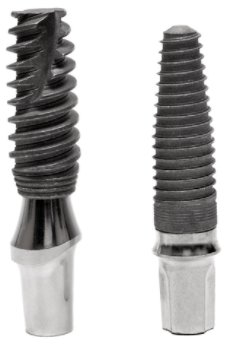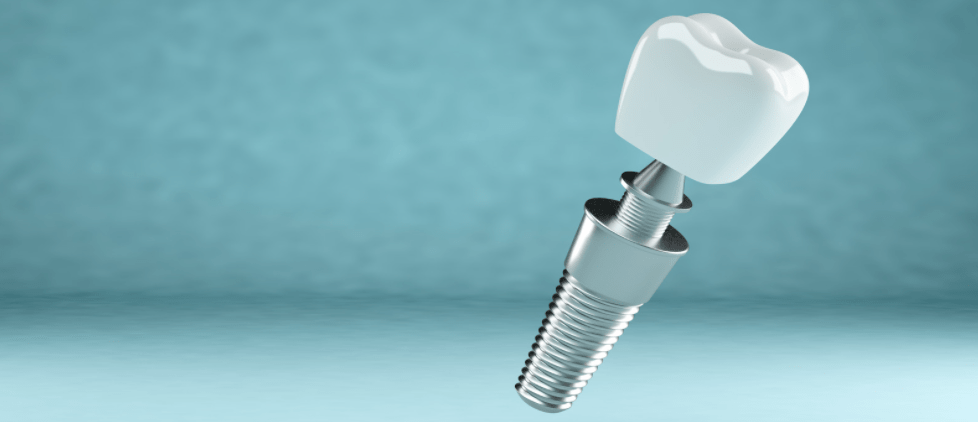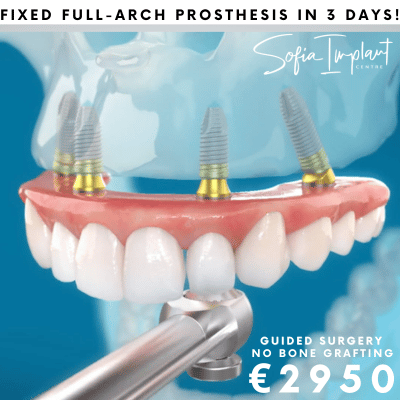If you’ve already talked to a few implant clinics, you’re certainly in a doubt if their implants are really as good as claimed. Brands like Straumann and Nobel Biocare may already sound familiar to you. In this post you will find out about the different brands, their prices, how the implants are manufactured, how they differ and, most importantly, how to make sure you get the best quality for your money.  Dental implants have been used with over 96% success for many years now and many companies fight to get into the 500-dollar screw business. This leads to a marketing fog in which it is difficult to navigate. To help you break though, let us explain quite simply how an implant is produced and why we think that material, processing and design are more of a marketing trick rather than a real advantage. This post will clear the details so you can make an informed choice about which implant system to go for.
Dental implants have been used with over 96% success for many years now and many companies fight to get into the 500-dollar screw business. This leads to a marketing fog in which it is difficult to navigate. To help you break though, let us explain quite simply how an implant is produced and why we think that material, processing and design are more of a marketing trick rather than a real advantage. This post will clear the details so you can make an informed choice about which implant system to go for.
Titanium
All dental implants are made of the metal Titanium. To make it suitable for the purpose the one used in dental implants has special impurities to meet the requirements. Based on this it is classified into several categories, namely Grade-4 and Grade-5 are the ones suitable for dental implants. Grade-4 and Grade-5 do not mean that one is superior over the other, but simply that they have different properties and are applicable in different cases. We want to stress on this because the sales people, and often patients, speculate on these classifications, highlighting them as if they were some kind of privilege. The fact is that all implants manufactured in the EU meet strict standards and you can rest assured if you are shown a TUV certificate. Do inquire for it! Stay away from the ones, produced in Turkey, China and Israel, as there the standards are different.
Processing
You will see a lot of marketing about the processing of the implant surface. It is considered important because it integrates with the jawbone in a process, called osteointegration. Here, the smart sales guys are getting really creative and “go up and beyond” on which processing is better, pulling all sorts of marketing tricks such as reviews, studies, measurements, etc. What we’ve personally seen in the several implant factories we visited while choosing an implant partner, and which we consider to be a valid argument, is that cheap production lines may skip some of the chemical treatment steps while processing the surface. To be precise, part of the process is blasting of the implants with fine sand – we were shown how high-end machines do it individually for each implant besides some manual processes, while the low-end ones may blast hundreds of implants at the same time and so the polishing is not properly angled. Besides that, there are more processing steps like treatment with acids and other chemicals. For example, in Europe the final sterilization of dental implants is centralized into only a few large plants.

Design
You will also find differences in the design – each company claims that its unique design provides benefits to the patient. What stays hidden of you is actually the desire of each implant brand to restrict doctors to using only their tools for implantation. This leads to limiting the patient, where he can “service” the implant – if it is from an unpopular brand you will find it difficult to find a clinic around you to do the job.
The BRAND
There are hundreds of implant manufacturers. They can be divided into three general categories:
-
-
- Tier 1: There is scientific research which confirms the long term benefits of the implants in this category. These implant system are considered the best quality and are offered at highest prices. The brands include Straumann, Nobel Biocare and a few others.
- Tier 2: There is scientific research and validation of the success of these implant systems which are mid-priced. The implants are mainly from Western Europe, USA, Japan and South Korea.
- Tier 3: Little or no scientific research supports the clinical use of these implants. The systems in this group are mostly replicating the technologies from the first two tiers and are offered with significant price discounts. These implants are offered by unlimited number of manufacturers – from the prestigious European countries to Turkey and China.
While preparing this post, we’ve gone through read a lot of research papers. The full list is available here (References). The scientific research is clear – there is no scientific evidence of the advantages of one type of implant over another, one brand over another. Implant failure almost always comes from other factors, namely non-compliance with the established protocols. The famous pioneer of implants and professor, George Zarb has formulated it very well:
“Implants do not fail. When implants are placed correctly in healthy patients, they achieve osseointegration (i.e., a bone connection). If the implants fail, it is due to an operator error.” (a link to the interview)
So the question should not be “Which implant system is best?” but rather, “Which implants are right for the particular surgical and reconstructive case?”.
If you’d like to know what implants we offer – please read the following post:
 What quality to expect from Sofia Implant Centre. Materials used, services & work standards.
What quality to expect from Sofia Implant Centre. Materials used, services & work standards.

Our Promise and Guarantee
We treat every patient with respect, responsibility and professionalism.
All our reconstruction works carry a 5-year guarantee subject to proper post-treatment care. All implants have a lifetime structural guarantee.
Get your free individual treatment plan today!
Get your free individual treatment plan today!
Related posts and videos:
 What quality to expect from Sofia Implant Centre. Materials used, services & work standards.
What quality to expect from Sofia Implant Centre. Materials used, services & work standards.
 Your Biggest Risk in Dental Implantation
Your Biggest Risk in Dental Implantation
 What is a dental implant?
What is a dental implant?
 Are dental implants right for me?
Are dental implants right for me?
 How to choose the best implants on the market?
How to choose the best implants on the market?
 CBCT (3D) Scan – Why Is It Important?
CBCT (3D) Scan – Why Is It Important?
 Extraction of teeth and placement of implants
Extraction of teeth and placement of implants
 Implants and lack of jawbone
Implants and lack of jawbone
 What is All-on-4 and All-on-6 complete dental restoration?
What is All-on-4 and All-on-6 complete dental restoration?
 The three most important things for successful treatment by the ALL-ON-4/6 protocol?
The three most important things for successful treatment by the ALL-ON-4/6 protocol?
 ZIRCONIUM and … zirconium.
ZIRCONIUM and … zirconium.
 Why the modern dental laboratory is so important?
Why the modern dental laboratory is so important?
 Surgical guides for dental implants – why is it so important?
Surgical guides for dental implants – why is it so important?
 Why getting an implant passport is a must?
Why getting an implant passport is a must?
 Classic or basal implants
Classic or basal implants
 Bite registration for complete dental restorations.
Bite registration for complete dental restorations.